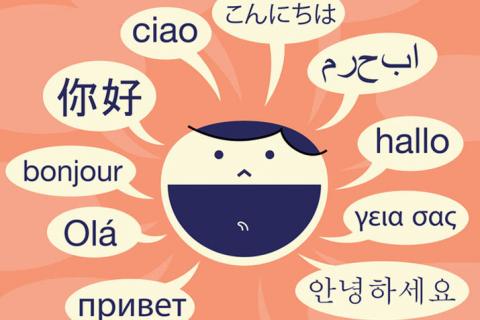The Language Barrier
Jul 22,2015
A couple weeks ago, the London Underground transportation system closed its gates to Londoners for 24 hours in protest of the new Night Tube that is set to begin operation in the coming weeks. For 24 hours, the citizens of London were forced to find alternative transportation to work and other places across the city. Traffic was worse than ever, and buses resembled sardine cans. It was awful.
Now, what does the London tube strike have to do with the language barrier? Well, superficially, it has absolutely nothing to do with it. England is a primarily English-speaking country, but it does have a lot of diversity within its city limits.
London is the most diverse city in the world; in my time here, I've met people from all different heritages: German, Spanish, Arabic, Asian, etc. They all come from different backgrounds, but they have all chosen to call London home. It's mind-boggling that so many from different walks of life cross each other's paths on a daily basis.
That's where the tube strike comes in. I take the tube to my internship every day—20 minutes there and 20 minutes back. Every single day. I took the tube for nearly a month before the strike happened. I hadn't rode a bus, and I had no idea how to navigate the city by bus. I wanted to call off work, but I didn't want to leave my boss in to work alone.
So, I mapped out the bus route I needed and headed out for the day. I was nervous at first because the bus stop is in a completely different direction than the tube station. I found the stop, and when the bus pulled up I got on and sat down.
About 30 seconds later a woman with a young boy around the age of three sat next to me. The boy was wearing a pair of sunglasses, and so was I. I looked at him and smiled because kids are cute and I love to see them smile.
He lifted his glasses and allowed them to rest on his forehead. I followed suit with my glasses as well. He smiled a big, toothy grin when he saw my glasses sitting awkwardly on my forehead.
He then proceeded to take his glasses off. I mirrored every move he made; this went on for the entirety of my journey to work. Glasses on, up, off, and on again. All the while the little boy was laughing one of those deep belly laughs that make you feel like you just chugged a cup of hot cocoa.
When my stop came to get off for work, I waved to the little boy. His mother began to speak to him, telling him what I believe was to wave bye because he started to wave to me. I say believe because I'm not so sure what she said since she spoke Spanish.
I had no idea that the woman or her boy were Spanish until that moment. Her son and I shared a great moment on the bus without words and bypassing the language barrier. I don't know if he knows English, but I definitely don't know Spanish. That didn't matter, though. I didn't need to to have a laugh with a sweet little boy.
Moving to a new city is scary enough when you're moving across a country that speaks your same language. Imagine moving or studying in a country whose native tongue is nothing you know. That's enough to cause nightmares.
Don't stress out, though. At our absolute core, we are all human. So maybe your tag says 'Made in America' and your neighbor's reads 'Made in Argentina/Amsterdam/Barcelona/Madrid'; who cares? With technology today, you can find an app easily that can help you learn new languages. My preferred app is Duolingo; it's a great way to learn a variety of new languages.
But you don't need to know a different language to communicate some things. A smile is a warm welcome in every language. Sometimes, you will find happiness and joy and laughter in others, and you won't ever have to speak a word. I did with that little boy, and you can too.
Don't let the fear of a new language from interacting with people during your time abroad. Stumble over your words and make a fool of yourself, but reach out to people. You make the best memories and have the best laughs that way. Don't let your tongue determine who you connect with.
(Image taken from designshack.net)





